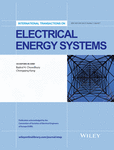Rational random walk-based optimal placement of phasor measurement units to enhance the initializing and guiding the optimization processes
Summary
Phasor measurement unit (PMU) is one of the state estimation devices that can synchronously measure both the voltage and the current phasor. Different methods have been presented for detecting the optimal number of PMUs. Some disadvantages of these methods are high computation burden, dependence on tuning parameters, complex calculation, and lack of accountability in large-scale power networks. This paper presents the novel strategy called rational random walk (RRW) to tackle these disadvantages. The first advantage of the proposed approach is the simple structure than conventional approaches. The second advantage is the independence of tuning parameters. The third advantage is the capability of implementation on the large-scale power networks. The fourth advantage is the use of 2-stage strategy for reducing the search space. The fifth advantage is capability of RRW to superimpose on the conventional optimization algorithm to enhance the convergence speed. The sixth advantage is capability of RRW to extract the optimal PMU placement under N-1 contingency. Superiority of the RRW in comparison with other methods is verified by implementing on the standard Institute of Electrical and Electronics Engineers (IEEE) test systems. Moreover, the proposed method has been used to specify and test the minimum number of PMUs in 2 real life systems in Iran power network. One of them is 400 kV, and the other one is 230 kV, and also a large-scale test system polish 2383-bus power system.




